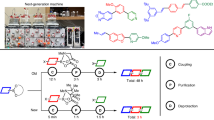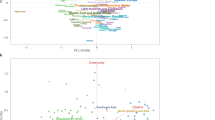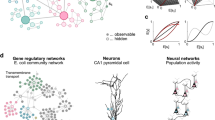Abstract
GAS-LIQUID chromatography1 is a commonly accepted method for the identification of substances in their mixtures. For these purposes a comparison of retention data on non-polar and selected-polar stationary phases is used with advantage.
This is a preview of subscription content, access via your institution
Access options
Subscribe to this journal
Receive 51 print issues and online access
$199.00 per year
only $3.90 per issue
Buy this article
- Purchase on Springer Link
- Instant access to full article PDF
Prices may be subject to local taxes which are calculated during checkout
Similar content being viewed by others
References
James, A. T., and Martin, A. J. P., Biochem. J., 50, 679 (1952).
Ferrero, P., Chimia, 15, 333 (1961).
Wollish, E. G., Schmall, M., and Hawrylyshyn, M., Anal. Chem., 33, 1138 (1961).
Janák, J., in Vapour Phase Chromatography, edit. by Desty, D. H. 254 (Butterworths Sci. Pub., London, 1957).
Author information
Authors and Affiliations
Rights and permissions
About this article
Cite this article
JANÁK, J. Chromatographic Identification of Complex Mixtures of High-Boiling Compounds. Nature 195, 696–697 (1962). https://doi.org/10.1038/195696a0
Issue Date:
DOI: https://doi.org/10.1038/195696a0
This article is cited by
-
Quantitative d�nnschicht-chromatographische Bestimmung einiger 8-Hydroxychinolin- und 8-Hydroxychinaldin-Derivate
Fresenius' Zeitschrift f�r Analytische Chemie (1974)
-
Liquid-solid chromatography on bentone-34
Chromatographia (1972)
-
Etude des hydrocarbures polycycliques aromatiques de l'atmosphere de Lyon
Chromatographia (1970)
Comments
By submitting a comment you agree to abide by our Terms and Community Guidelines. If you find something abusive or that does not comply with our terms or guidelines please flag it as inappropriate.



